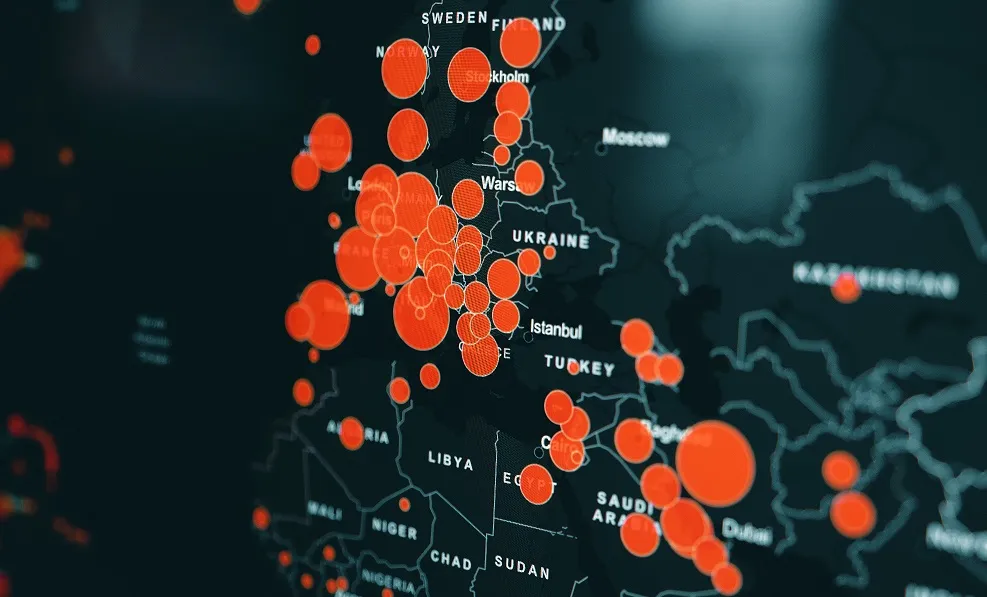Contact tracing democracy in a post-COVID-19 world

Disclaimer: Views expressed in this commentary are those of the staff member. This commentary is independent of specific national or political interests. Views expressed do not necessarily represent the institutional position of International IDEA, its Board of Advisers or its Council of Member States.
In September 2001, hours after the terrorist attacks on the World Trade Center in New York, a British government civil servant in London who at that time served under the Transport Secretary, sent an email to her colleagues underlining this was “a good day to bury bad news”. Considering that the public’s attention was diverted towards the attack occurring on the other side of the pond, this was deemed to be a good opportunity for the British government to pass certain unpopular policies which could escape the public’s scrutiny more easily. As expected, news of this email caused quite a scandal for the already spin-doctor-heavy government of the then-Prime Minister Tony Blair.
Today, the global crisis of the coronavirus COVID-19 poses a multitude of challenges for all walks of life. For democracy practitioners, these times of the pandemic are bound to be challenging and unpredictable for the future of democracy, for civil liberties and for liberal values. That’s because, regardless of the global crisis (or rather precisely because of it), there are leaders and governments out there who will consider this to be an ideal time to “bury bad news” and concentrate power around themselves.
A carpe diem moment for autocrats (and others) the world over
Already, Prime Minister Victor Orbán of Hungary has made possible that which till very recently seemed utterly implausible: he has managed to make the Parliament, controlled by his party—Fidesz—cancel all elections, suspend its ability to legislate, and give him the right to rule by decree indefinitely. It does not require much background reading on Orbán’s earlier ruling tactics to see that the pandemic was an excuse to accumulate power and rule as he sees fit, without having to be accountable to anyone. In another case, the Philippines President Rodrigo Duterte declared last week that he had given instructions to the armed forces to shoot at anyone who did not follow the government’s instructions to stay home. The first victim of such a policy was actually recorded on 4 April, when police shot a farmer for not cooperating with them at a checkpoint.
The COVID-19 global crisis is increasingly triggering emergency responses, even in more consolidated democracies. For example, Israel has approved emergency measures for its security services to track mobile phone data of people suspected of being infected with the virus. In the United Kingdom, the police have been given new powers to arrest and fine persons who do not abide by the strict lockdown rules imposed by the government. And it was reported that in Sweden the government wanted to be given more temporary powers to be able to make decisions quickly without the Parliament’s prior approval. If realized, these would have been the most far-reaching powers for a Swedish government since WWII. However, in the face of vehement opposition the government withdrew from such heavy-handed tactics in return for some watered-down measures agreed with Parliament.
It transpires, then, that this virus is already exposing at least two major forces that push for structural changes onto international relations and political systems: a set of centripetal forces and a set of centrifugal forces.
Firstly, the centripetal forces emanate from leaders and governments that aspire to gain more control and more centralized powers under the pretext of fighting COVID-19. They will continue to do this, intentionally and unavoidably, by chipping away at civil liberties, human rights, civil society’s role, opposition and oversight functions of institutions. The proclamation of emergency measures may well be adequate and necessary to respond to the unprecedented threat of the coronavirus. But at the same time, this crisis is an excellent opportunity for leaders and governments to go on a power-grabbing spree that is bound to rein on individual freedoms and civil liberties.
What’s even more disconcerting is that these measures for more power and control, although meant to be temporary, may likely linger on for quite some time. This is so because the coronavirus may be around for some time to come, which would justify the prolongation or even reinforcement of extraordinary measures. Secondly, and perhaps more worryingly, even when this global crisis is over, it is possible that these extraordinary measures, or at least some residual elements of them, will remain entrenched in our political systems. In other words, even when we go back to normal, the political system as we know it will be a different kind of normal. The so-called anti-terror legislation and extraordinary powers passed in a number of countries in the last two decades prove that some of those policies tend to stay behind even when the threat subsides. Likewise, the extraordinary measures taken against the Coronavirus today might be annulled in a post-COVID-19 tomorrow, but it is probable that some procedures or policies will remain in place, if only as preemptive measures for the future. It is also likely that these measures, as they are ingrained in our political systems, will come at a price for our civil liberties, liberal norms and values.
Secondly, the set of centrifugal forces originate from the governments’ accelerated need to use information technology and surveillance to gather more data over societies, as well as more control of that data. What does this mean for democracy?
Data and democracy: will they tango?
In an effort to prevent the spread of the infection, or indeed to fight the disease proactively, the collection and crosstabulation of data is considered key. A few days ago Google began collecting mobile location data from 131 countries as a means to determine more concretely the degree to which people are respecting quarantine and lockdown instructions issued by governments. In follow-up, Google publishes so-called Community Mobility Reports, which contain breathtakingly detailed information on the people’s whereabouts per country, regions, district, etc. State authorities, health services etc., are then able to make use of such data to get a clear overview of possible infection points, which will in turn help them react accordingly.
By now, we are aware of those basic precautionary measures that should be taken against COVID-19: physical distancing, (self)isolation, quarantine, hygiene. In addition, health authorities perform individual testing on persons who might have contracted the virus, or large-scale testing on the population as a way of trying to stop the spread of the disease in its tracks. Taiwan, South Korea etc., have been conducting such vigorous and large-scale tests. In China, too, technology and apps are utilized to enable quick and efficient testing.
In addition, contact tracing is identified as an essential measure to fight the ongoing epidemic. According to the European Centre for Disease Prevention and Control, contact tracing is achieved through “the prompt identification of contacts of a probable or confirmed case of COVID-19”. Once a patient carrying the disease is diagnosed, it is important to initiate contact tracing—i.e. identification of persons the patient was in contact with over a period—as a way of preventing further transmission of the disease. As we speak, there is even a race between the US and Europe on who will develop more efficient contact tracing apps.
It seems therefore that the coronavirus crisis is already convincing us of an increased necessity to use information technology, social media, apps and surveillance mechanisms as means to fighting this disease, and other risks in the future. China, for example, has been using contact tracing aggressively in its quest to squelch the virus. But it has done so by being largely oblivious of people’s rights and privacies.
Therefore, the lesson drawn from the coronavirus experience so far is that, indeed, the utilization of information technology, apps, is more easily implementable in authoritarian regimes. However, the creation of a surveillance state is a real prospect under these conditions. This is a slippery slope towards serious backsliding and shrinking civic space, as warned by International IDEA’s Global State of Democracy report 2019.
The usage of information technology seems bound to be accelerated in democracies, too. In a post-COVID-19 world, it may well be that apps, social media and other contact tracing mechanisms will be further enforced in citizens’ daily lives. This will be the challenge of democracies: the maintenance of a precarious balance between liberal values and civic rights versus data collection, surveillance and contact tracing. But, contrary to autocratic regimes, democracies have in-built added advantages: they possess an organic relationship between the elected and the electorate, which is deeper or less deep depending on the quality of a democracy. But this relationship is normally always stronger than that in autocratic regimes because it is sourced in principles such as trust, solidarity, transparency and accountability, which are fostered by the government and the people alike. The introduction of information technology tools into the citizens’ lives in the future is to be achieved by maintaining a democratically agreed balance between the need for data on one hand and civic rights on the other.




